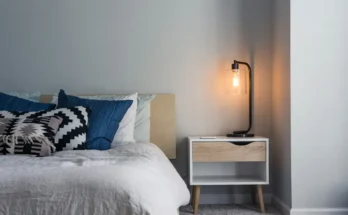Two years ago my world tilted and I felt the floor give beneath me when Anna told me, without fanfare, that she was leaving. She walked out with a single suitcase and those words—“I can’t do this anymore”—echoed in the doorway as I stood holding our four-year-old twins, Max and Lily. I had just lost my job; the company I worked for folded overnight and my six-figure salary evaporated into unemployment checks and worry. In that instant my dignity felt shattered, but what cut deepest was watching the woman I loved choose escape over endurance with the family she had vowed to keep.
The first year was a blur of exhaustion and fear. I scrambled for work—driving for ride-share at night, delivering groceries by day—while trying to parent two small, bewildered children who kept asking where Mommy was. My parents helped with babysitting when they could, but they were retired and stretched thin. Nights were the hardest: feeding, bathing, calming two little bodies that still expected both parents. The house felt bigger and lonelier. My priorities narrowed to one thing: to make sure Max and Lily never woke up and felt abandoned again. Their “We love you, Daddy” kept me going on nights when I wanted to quit.
Slowly, a new rhythm took shape. In the second year I landed a freelance coding project that turned into a steady remote position with a small cybersecurity firm. The paycheck wasn’t what I’d had before, but it was stable, and we moved into a cozier apartment where routines replaced panic. I started cooking, exercising, and building predictable rituals for the kids—bedtime stories, preschool drop-offs, and weekend pancakes. Those small, steady things turned survival into a life that looked, in its quiet way, like thriving. For the first time since Anna left, I felt hope threading through the days.
Exactly two years after she left, I saw her in a café near our apartment, head bowed and face wet with tears. She looked worn—no designer polish, no confident stride—just someone unraveling. My chest tightened. I could have ignored her, but she is the mother of my children, and something in me still cared. I walked over, sat down, and we talked. She said she’d made a mistake, that she’d thought she could find a better life apart from the mess we’d been thrown into. She told me she’d lost her job, been cut off by help she’d expected, and discovered how lonely it was to be on her own.
Her plea to come back landed like an accusation wrapped in desperation. She reached for my hand and begged for a chance to make it right; I listened and felt a rush of anger, pity, and disbelief collide. I asked whether she had thought of Max and Lily in the two years she’d been gone. She whispered she had, that shame kept her from returning. I thought about the nights I’d carried both grief and bread home, the tiny hands that clung to me at bedtime. I realized that whatever she had lost, my children had already paid a price in her absence, and my first duty was to protect their stability.
I left that café with my decision made. At dinner that night, watching Max animatedly describe a worm he found and Lily hand me a crayon drawing of our family, I felt the certainty of what I’d built for them. Anna had thrown away years and walked into hard lessons; maybe one day she’d show sustained change, and maybe then I would consider letting her back into their lives in a limited, safe way. For now, our chapter with her was closed. I would hold to the life we’d rebuilt: predictable dinners, bedtime rituals, and a promise that, whatever else happened, we would not abandon our children again.


